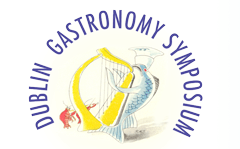Start Date
25-5-2020 3:00 PM
End Date
25-5-2020 3:15 PM
Description
While culinary history is rife with disruptions driven by myriad factors, in this paper, derived from an in-progress article, I argue that the course of culinary evolution in Rome has been disrupted most recently by a fossilized dependence on gastrotourism, manifesting in what I term the “template menu” – an artificial construction intended to satisfy consumer demand for the authentic Roman gastronomic experience. While past research into culinary heritage tourism has emphasized the experiences and expectations of tourists and the preservation of traditions (World Tourism Organization, 2017; Richards, 2012, pp. 13-14) or more explicitly the efforts of destination marketing and national tourism organizations (Chang and Mak, 2018, p. 2), little attention has been paid to the concerns of chefs and restaurateurs. Here I address that discrepancy in a Roman context in which chefs are seeking to carve out a space for individual expression amidst the rigidity of a market-propelled ‘traditional’ menu and yet remain commercially viable. The aim of this study is to investigate this predicament by qualitative engagement, focusing specifically on the perspective of food service providers. This exegesis speaks broadly to questions arising in other cities with a high influx of tourists and well-established gastronomic standing, operating in conditions where authenticity has become commodified, although, granted, there is no place like Rome.
DOI
https://doi.org/10.21427/s66d-j898
Included in
Plating Authenticity in the Eternal City
While culinary history is rife with disruptions driven by myriad factors, in this paper, derived from an in-progress article, I argue that the course of culinary evolution in Rome has been disrupted most recently by a fossilized dependence on gastrotourism, manifesting in what I term the “template menu” – an artificial construction intended to satisfy consumer demand for the authentic Roman gastronomic experience. While past research into culinary heritage tourism has emphasized the experiences and expectations of tourists and the preservation of traditions (World Tourism Organization, 2017; Richards, 2012, pp. 13-14) or more explicitly the efforts of destination marketing and national tourism organizations (Chang and Mak, 2018, p. 2), little attention has been paid to the concerns of chefs and restaurateurs. Here I address that discrepancy in a Roman context in which chefs are seeking to carve out a space for individual expression amidst the rigidity of a market-propelled ‘traditional’ menu and yet remain commercially viable. The aim of this study is to investigate this predicament by qualitative engagement, focusing specifically on the perspective of food service providers. This exegesis speaks broadly to questions arising in other cities with a high influx of tourists and well-established gastronomic standing, operating in conditions where authenticity has become commodified, although, granted, there is no place like Rome.
